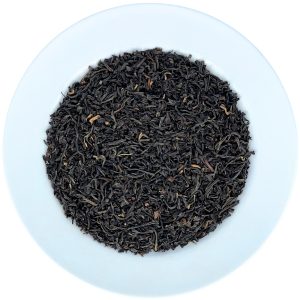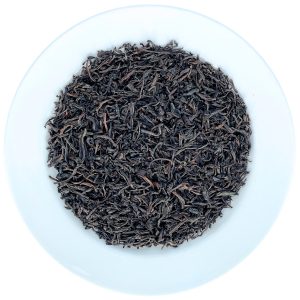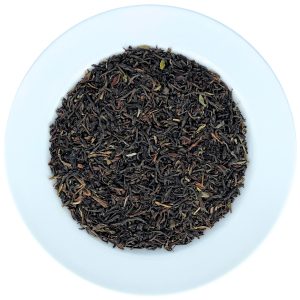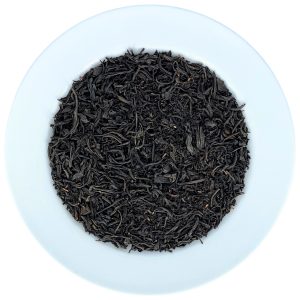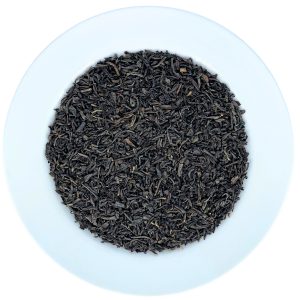O’ways
Flavours Of Kindness
Exploring
the Richness
of Black Tea
TEA, Issue 1
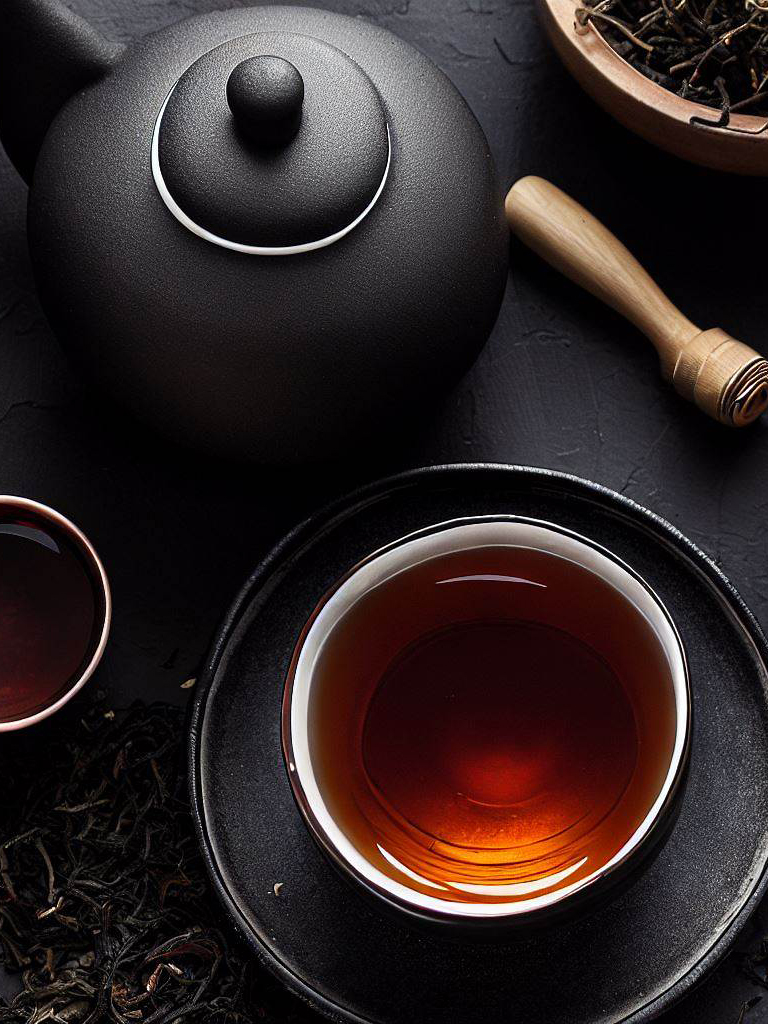
Black tea is one of the most consumed beverages in the world. It is enjoyed for its rich and robust flavour, and it is also known for its numerous health benefits. But did you know that black tea has a connection to Africa’s tea trading history? In this article, we will explore the health benefits of black tea and how it is linked to Africa’s tea trade.

Black tea research has been shown to improve cognitive function and reduce the risk of developing Alzheimer’s disease and other forms of dementia.
Camellia sinensis Photo by Tokyo Kohaku on Unsplash
Black tea comes from the Camellia sinensis plant, native to China and India. It is one of the most oxidised types of tea, which gives it its distinct flavour and dark color. The leaves are harvested, withered, rolled, and then left to oxidise for several hours before being dried and packaged.
In Africa, tea was first introduced in the early 1300s by Moroccan and Somali scholars then commercially by British colonisers. The continent produces some of the finest teas in the world, and black tea is a significant part of this production. African black tea is grown in countries like Kenya, Malawi, and Tanzania.Today, Keyna and Malawi are one of world’s largest tea producer and exporter after China and India.
One of the main health benefits of black tea is that it is rich in antioxidants, which can help to reduce the risk of chronic diseases like cancer, heart disease, and diabetes. Antioxidants help neutralise free radicals in the body, which can cause cellular damage and contribute to the development of these diseases.
Black tea also contains caffeine, which can help to boost energy levels and improve mental alertness. It has been shown to improve cognitive function and reduce the risk of developing Alzheimer’s disease and other forms of dementia.
One of the main health benefits of black tea is that it is rich in antioxidants, which can help to reduce the risk of chronic diseases like cancer, heart disease, and diabetes.
In addition, black tea contains compounds called theaflavins and thearubigins, which have been shown to have anti-inflammatory properties. This makes black tea beneficial for those with inflammatory conditions like arthritis and inflammatory bowel disease.
Another health benefit of black tea is that it can help to improve cardiovascular health. Studies have shown that drinking black tea regularly can help to reduce blood pressure and lower cholesterol levels. This can help to reduce the risk of heart disease and stroke.
In Africa, black tea has played a significant role in the continent’s economy. Tea production and trade have provided employment opportunities and contributed to economic growth in countries like Kenya and Malawi. The tea industry has also played a role in promoting sustainable agriculture practices and supporting small-scale farmers.
In South Africa, black tea consumption and enjoyment is high, possibly on a par with rooibos consumption in some families.
In harmony with the energy of black tea, the production of black tea requires older leaves, possibly more than two years old. After cycles of season, the leaves harden during warm summer months and increase their robust nature during dry months, which all add to its maturity, essential to the grounding and woody nature of black tea. Resonating with its grounding nature and flavours, it pairs well with the sweetness from sugar, dessert, and milk. No wonder most black tea drinkers prefer black tea with sugar and milk. However, amazing black teas are beautifully rounded from Malawi, Kenya, India, Sri Lanka, China, and Taiwan. Satemwa from Malawi, Keemun from China, Margaret’s Hope from India and Sun Moon Lake from Taiwan are some of the fascinating black teas.

Tea production and trade have provided employment opportunities and contributed to economic growth in countries like Kenya and Malawi.
Photo by Seth Doyle on Unsplash

Photo by Igor Miske on Unsplash

Thirsty for some tea?
Check out our black tea collection!
Related Stories
O’ways #4 – FLAVOUR, Honeybush-Infused Wanton Soup
The infusion of Honeybush tea into the base of this soup offers a unique depth of flavour—a delicate sweetness intertwined with subtle earthy notes…
O’ways #4 – TEA, Honeybush Tea
Honeybush tea, also known as “Heuningtee” in Afrikaans, hails from the beautiful landscapes of South Africa. It’s derived from the Cyclopia plant, which belongs to the legume family and has been used for centuries as an herbal infusion.
O’ways #4 – PEOPLE, Mingwei
Nigiro, a beloved name in the world of premium tea in South Africa, has always been synonymous with knowledge, wisdom, and the art of tea-making. For those of you who have had the pleasure of visiting our cherished tea cafe, you’ll understand the warmth and magic that the Nigiro family infuses into their brand. It’s a place where delectable cuisine, exquisite tea-tasting, and an ambience of pure tranquillity come together seamlessly. Today, I’m delighted to introduce you to someone who is not only an integral part of the Nigiro legacy but also the heart and soul of our tea training – Mingwei Tsai.

